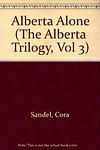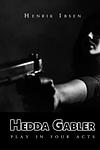The Greatest Norwegian, Argentinian, Brazilian Books of All Time
Click to learn how this list is calculated.
This list represents a comprehensive and trusted collection of the greatest books. Developed through a specialized algorithm, it brings together 305 'best of' book lists to form a definitive guide to the world's most acclaimed books. For those interested in how these books are chosen, additional details can be found on the rankings page.
Genres
Countries
Date Range
Reading Statistics
Click the button below to see how many of these books you've read!
Download
If you're interested in downloading this list as a CSV file for use in a spreadsheet application, you can easily do so by clicking the button below. Please note that to ensure a manageable file size and faster download, the CSV will include details for only the first 500 books.
Download-
1. Fictions by Jorge Luis Borges
"Collected Fiction" is a compilation of stories by a renowned author that takes readers on a journey through a world of philosophical paradoxes, intellectual humor, and fantastical realities. The book features a range of narratives, from complex, multi-layered tales of labyrinths and detective investigations, to metaphysical explorations of infinity and the nature of identity. It offers an immersive and thought-provoking reading experience, blurring the boundaries between reality and fiction, past and present, and the self and the universe.
The 101st Greatest Book of All Time -
2. Hunger by Knut Hamsun
This novel is a psychological journey through the mind of a starving young writer in 19th century Norway. Driven by pride and stubbornness, he refuses to accept help and instead chooses to endure severe hunger and the mental and physical deterioration it causes. His struggle is not only with his physical condition but also with his own mind as he battles hallucinations, mood swings, and an increasingly distorted perception of reality. The book is a profound exploration of poverty, mental illness, and the human will to survive.
The 302nd Greatest Book of All Time -
3. Labyrinths by Jorge Luis Borges
"Labyrinths" is a collection of short stories and essays that explore complex themes of infinity, parallel universes, and the blurred lines between reality and illusion. The narratives often feature protagonists who are scholars or librarians, trapped in surreal, metaphysical landscapes. The author's unique writing style combines elements of magical realism, philosophy, and detective fiction, creating an intricate web of narratives that challenge the reader's perception of reality and fiction.
The 304th Greatest Book of All Time -
4. The Alchemist by Paulo Coelho
A young Andalusian shepherd named Santiago dreams of finding a worldly treasure and sets off on a journey across the Egyptian desert in search of it. Along the way, he encounters a series of characters who impart wisdom and help guide his spiritual journey. The novel explores themes of destiny, personal legend, and the interconnectedness of all things in the universe. The boy learns that true wealth comes not from material possessions, but from self-discovery and attaining one's "Personal Legend".
The 308th Greatest Book of All Time -
5. A Doll's House by Henrik Ibsen
This classic play focuses on the life of Nora Helmer, a woman living in a seemingly perfect marriage with her husband, Torvald. However, as the story unfolds, it becomes clear that Nora has been hiding a significant secret related to their finances. The revelation of this secret, and the subsequent fallout, challenges societal norms and expectations of the time, particularly in regards to gender roles and the institution of marriage. Nora's eventual decision to leave her husband and children in pursuit of her own independence serves as a powerful commentary on individual freedom and self-discovery.
The 324th Greatest Book of All Time -
6. Kristin Lavransdatter by Sigrid Undset
Set in 14th century Norway, "Kristin Lavransdatter" follows the life of its titular character from her childhood, through her tumultuous and passionate marriage to Erlend Nikulausson, to her life as a mother and eventual widow. The narrative explores Kristin's struggles with faith, societal expectations, and personal desires, offering a vivid portrayal of medieval Scandinavian life along the way. Despite the many hardships she faces, Kristin remains a strong and resilient woman, embodying the spirit of her time.
The 394th Greatest Book of All Time -
7. The Devil to Pay in the Backlands by Joao Guimaraes Rosa
"The Devil to Pay in the Backlands" is a complex narrative that follows the life of a Brazilian sertanejo (backlands dweller) who becomes a bandit and a feared killer. Tormented by his violent actions, he embarks on a metaphysical journey, wrestling with philosophical and religious questions, and trying to reconcile his deep belief in fate and predestination with his own free will. The book is notable for its innovative language, blending regional dialects with neologisms and classical references, which adds to its rich portrayal of the Brazilian backlands.
The 460th Greatest Book of All Time -
8. The Hour of the Star by Clarice Lispector
"The Hour of the Star" is a poignant narrative that explores the life of Macabéa, a poor, unattractive, and naive typist living in the slums of Rio de Janeiro. The story is narrated by Rodrigo S.M., a sophisticated writer who struggles with how to accurately portray Macabéa's simple existence and her tragic fate. The novel delves into themes of identity, poverty, and the human condition, presenting a stark contrast between the lives of the rich and the poor, the educated and the ignorant, and the beautiful and the plain.
The 504th Greatest Book of All Time -
9. Hopscotch by Julio Cortázar
This avant-garde novel invites readers into a non-linear narrative that can be read in two different orders, following the life of Horacio Oliveira, an Argentine intellectual living in Paris with his lover, La Maga. The story explores philosophical and metaphysical themes, delving into the nature of reality and the human condition, while also examining the struggles of intellectual and emotional life. The second part of the novel takes place in Buenos Aires, where Horacio returns after La Maga disappears, and where he grapples with his past, his identity, and his place in the world.
The 532nd Greatest Book of All Time -
10. The Posthumous Memoirs of Bras Cubas by Machado de Assis
The novel is a unique and satirical work, narrated by a dead man, Bras Cubas, who recounts his life from beyond the grave. The story is filled with ironic humor and philosophical musings as Bras Cubas explores his past, his relationships, and the societal norms of his time. The narrative breaks conventional storytelling norms, often addressing the reader directly and jumping through time without warning. Themes of love, wealth, power, and the human condition are explored, providing a critique of 19th-century Brazilian society.
The 589th Greatest Book of All Time -
11. Growth of the Soil by Knut Hamsun
"Growth of the Soil" is a novel that follows the life of a man who leaves his nomadic lifestyle to become a pioneer farmer in the Norwegian wilderness. The narrative traces his journey from solitude to building a family and a thriving farm, showcasing his deep connection with the land and the cyclical nature of life. The book also explores the tension between traditional rural life and modernity, as external forces such as industrialization and societal change begin to impact the protagonist's simple existence.
The 655th Greatest Book of All Time -
12. Facundo by Domingo Faustino Sarmiento
"Facundo" is a socio-political critique and historical account of Argentina during the first half of the 19th century. The book examines the life of the gaucho, Facundo Quiroga, who becomes a powerful and ruthless warlord, illustrating the destructive effects of caudillismo (military dictatorship) on society. The author uses Quiroga's life to delve into broader themes such as the struggle between civilization and barbarism, the need for education, and the dangers of unchecked political power.
The 713th Greatest Book of All Time -
13. Dom Casmurro by Machado de Assis
The novel is a darkly comic, yet tragic exploration of love, betrayal, and jealousy, told through the unreliable narration of the protagonist, a middle-aged man who believes his wife has cheated on him with his best friend. The narrative is filled with ambiguity and uncertainty, forcing readers to question the reality of the events described. The novel is also a profound exploration of the human psyche and the destructive power of obsession.
The 766th Greatest Book of All Time -
14. Sophie's World: A Novel About the History of Philosophy by Jostein Gaarder
"Sophie's World" is a unique and intriguing novel that intertwines the narrative of a young girl named Sophie with a comprehensive history of Western philosophy. Sophie begins receiving mysterious letters from an unknown philosopher and gradually becomes engrossed in the world of philosophy. The book uses Sophie's journey to explore philosophical concepts and theories, from ancient to modern times, in an accessible and engaging way, making it an excellent introduction to the subject for readers of all ages.
The 906th Greatest Book of All Time -
15. The Passion According to G.H. by Clarice Lispector
"The Passion According to G.H." is a philosophical novel that delves into the existential crisis of a wealthy Brazilian woman who, after killing a cockroach in her maid's room, experiences a profound metaphysical crisis. The narrative unfolds as a stream of consciousness that explores themes of identity, existence, and the nature of reality. The protagonist's journey forces her to confront her own humanity, the concept of nothingness, and the chaotic, interconnected nature of life. It's a profound and introspective exploration of the human condition and the meaning of existence.
The 1062nd Greatest Book of All Time -
16. House with the Blind Glass Windows by Herbjørg Wassmo
"House with the Blind Glass Windows" is a poignant tale of a young girl growing up in Norway during the 1950s. The narrative explores her struggles with family secrets, abuse, and the oppressive nature of her small, rural community. The protagonist's journey towards understanding and overcoming her traumatic past forms the crux of the story, which is set against the backdrop of post-war Europe.
The 1096th Greatest Book of All Time -
17. Pan by Knut Hamsun
The novel is a lyrical exploration of the beauty and savagery of nature, set in the wild landscapes of Northern Norway. It follows the story of a solitary hunter and former military man who lives in harmony with the wilderness. His peaceful existence is disrupted when he falls in love with a young woman, leading to a tumultuous relationship that reflects the untamed and unpredictable forces of the natural world around them. The narrative delves into themes of passion, isolation, and the human longing for connection, all while painting a vivid portrait of the changing seasons and the primal allure of the forest.
The 1123rd Greatest Book of All Time -
18. Don Segundo Sombra by Ricardo Güiraldes
This classic Argentine novel is a coming-of-age story set in the Pampas, focusing on the life of a young orphan who finds guidance and mentorship under the wing of a seasoned gaucho named Segundo Sombra. Through his experiences in the vast landscapes of rural Argentina, the protagonist learns the values of courage, responsibility, and freedom, embodying the gaucho spirit. The narrative, rich in poetic imagery and symbolism, explores themes of identity, tradition, and the passage into adulthood, offering a deep reflection on the essence of Argentine culture and the timeless bond between man and nature.
The 1135th Greatest Book of All Time -
19. Los Siete Locos by Roberto Arlt
"Los Siete Locos" is a complex and dark novel set in the 1920s in Buenos Aires. The story revolves around a man who, disillusioned with his mundane life and the corruption he sees around him, becomes involved with a group of anarchists who plan to overthrow the government. The protagonist is drawn into a world of madness, conspiracy, and philosophical debate, as he grapples with his own sanity and the morality of his actions. The book explores themes of existentialism, societal decay, and the blurred line between sanity and insanity.
The 1285th Greatest Book of All Time -
20. The Alberta Trilogy by Cora Sandel
"The Alberta Trilogy" is a series of three novels that follow the life of Alberta Selmer, a young woman growing up in a small Norwegian town in the early 20th century. The trilogy explores Alberta's struggle with societal expectations, her pursuit of independence and her journey to becoming a painter. Set against the backdrop of a harsh Norwegian landscape, the series highlights the protagonist's struggle with poverty, her relationships, and her exploration of her identity and place in the world.
The 1346th Greatest Book of All Time -
21. Hedda Gabler by Henrik Ibsen
"Hedda Gabler" is a dramatic play that centers on the life of its titular character, a woman trapped in a loveless marriage with a dull, reliable husband. She is bored with her life and longs for freedom and excitement. Her desire for control and power leads her to manipulate those around her, resulting in tragic consequences. The play explores themes of societal expectations, personal freedom, and the destructive power of boredom.
The 1497th Greatest Book of All Time -
22. Rebellion In The Backlands by Euclides da Cunha
This book offers a detailed and vivid account of the War of Canudos, a significant peasant revolt that took place in the late 19th century in the Brazilian backlands. Through a blend of historical documentation and narrative, the text explores the socio-political conditions that led to the uprising, the charismatic leadership of Antônio Conselheiro, and the brutal suppression of the rebellion by the Brazilian government. The author delves into the geography, culture, and lives of the backland inhabitants, providing a deep analysis of the conflict as a reflection of the broader struggles within Brazilian society. This work is not only a historical account but also a profound commentary on the themes of civilization versus barbarism, social injustice, and the complexities of national identity.
The 1599th Greatest Book of All Time -
23. Martín Fierro by José Hernández
"Martín Fierro" is an epic poem that tells the story of a gaucho, or Argentine cowboy, who is forcibly recruited to fight against indigenous tribes. He returns to find his home destroyed and his family gone, leading him to become an outlaw. The narrative explores themes of Argentine identity, the conflict between civilization and nature, and the injustices suffered by the gauchos. It is recognized as a foundational work of Argentine literature.
The 1623rd Greatest Book of All Time -
24. The Tunnel by Ernesto Sábato
The book in question is a psychological thriller that delves into the mind of a painter who becomes obsessively infatuated with a woman he barely knows. His unrequited love and spiraling madness lead him down a dark path of existential angst, culminating in a shocking act of violence. The narrative unfolds through the artist's perspective, as he reflects on his actions and the alienation he feels from society, revealing the depths of his troubled psyche and his struggle to find meaning in an indifferent world.
The 1771st Greatest Book of All Time -
25. Macunaíma by Mario de Andrade
This book is a hallmark of Brazilian literature, blending folklore, social critique, and surrealism to narrate the adventures of its eponymous hero, a shapeshifting character of indigenous origin who embarks on a journey from the Amazon rainforest to the city of São Paulo. Throughout his quest to retrieve a magical amulet stolen by a fearsome giant, the protagonist encounters a myriad of mythical creatures, gods, and figures from Brazilian folklore, all while satirizing the cultural and social issues of early 20th-century Brazil. The narrative is celebrated for its inventive language, playful use of Brazilian vernacular, and its pivotal role in the Brazilian Modernist movement, offering a unique exploration of national identity, racial diversity, and the complex relationship between tradition and modernity.
The 1852nd Greatest Book of All Time
Reading Statistics
Click the button below to see how many of these books you've read!
Download
If you're interested in downloading this list as a CSV file for use in a spreadsheet application, you can easily do so by clicking the button below. Please note that to ensure a manageable file size and faster download, the CSV will include details for only the first 500 books.
Download























